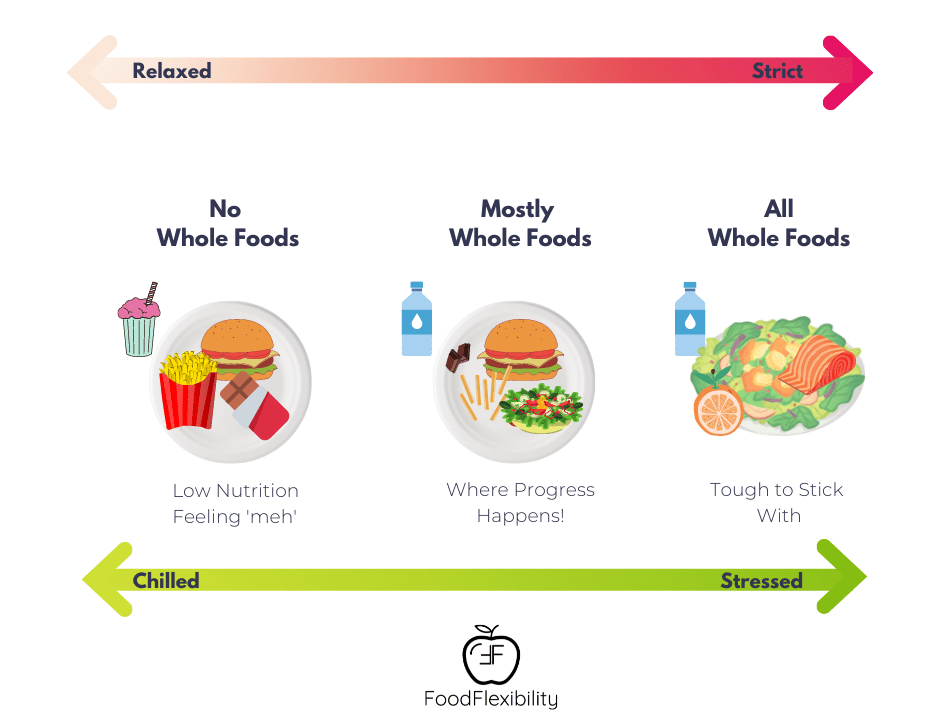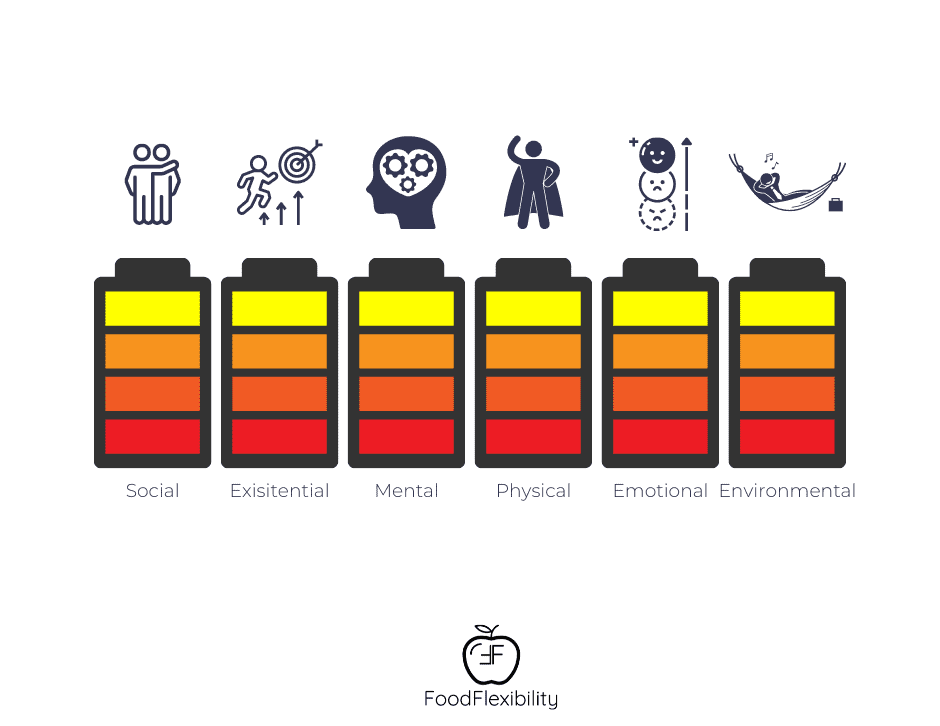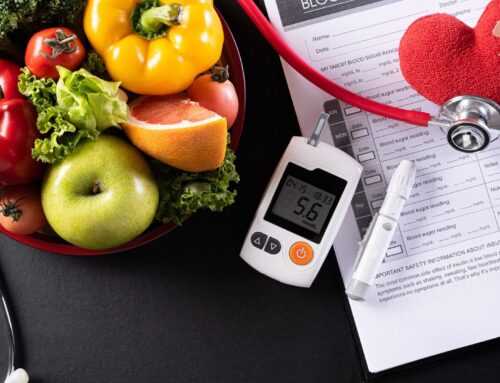Does a healthy diet mean avoiding your favourite foods?
Probably not! You can and probably should eat ‘junk’ food whilst losing weight, gaining muscle and improving athletic performance.
You know the ones, pizza, crisps, chocolate, ice cream, beer, etc. Things that you find delicious, but think are probably off limits if you have any kind of athletic ambition.

Quite a lot of people call these things ‘junk food’, maybe you do to. That’s cool but I hate that term, food is food in my book.
You’re not actually eating out of the wheelie bin, are you?
Sure, some foods are higher in calories and lower in the stuff which helps you function optimally (like protein, vitamins and minerals).
That misses the point though…
- Tasty foods serve a purpose outside of their nutritional value
- Low quality foods can be good for you
- Very few people can avoid these foods for life without ending up with an eating disorder
Key Points:
- You will eat ‘junk food’ at some point
- Junk food won’t prevent you improving your health on its own
- Enjoyable foods, regardless of nutrition can boost your health
It’s the whole reason I set up food flexibility
Once upon a time, I tried out the whole clean eating thing, I ended up having a ‘cheat evening’ once a week which soon tuned into an all-out binge followed by feeling so uncomfortably full, I ended up being sick. Not a situation I was happy with!
So many of my clients come to me with a poor relationship with food borne out of framing things as ‘good’ or bad’.
I help them to feel more like this:

I want to help you feel that way too
If you’re part of the 1% that genuinely prefer carrot sticks to pringles then kudos. You’re a pilar of cast iron motivation with freakish willpower. Hats off to you and keep up the great work!
For the rest of us who can’t stop once they’ve popped that tube of Pringles
This article is for you!
3 reasons to embrace FoodFlexibility:
#1 You will eat ‘junk food’ at some point:
If you’ve ever promised yourself ‘I’ll cut out crisps’ or ‘not eat any more chocolate’ how well dis that work out?
How long did the eutopia of that zero-junk ‘diet’ last?
Thought so…
For most of us, the reality of relying on willpower to avoid these foods looks a bit like this:
- Urgh, I’ve over done it – no more chocolate
- It lasts a few days, you feel great
- You get a bad night sleep, work is pants and the coffee machine breaks
- Someone offers you a chocolate hobnob
- You decide to have one and then think screw it.
- You eat the whole pack
- You head back to step one and repeat…
Imagine an alternative scenario where you at a chocolate Hobnob every day…
It starts to become more normal, like an apple or a potato.
Reality check:
- Yes, a Hobnob is tastier but you haven’t made it ‘special’ by putting it on the ‘bad list’. It starts to feel more like food…
- Calories matter but it’s way easier to fit one 70 calorie Hobnob into balanced diet every day than 1,400 calories from downing the whole pack in a single sitting…
What happens when you have that Hobnob regularly and intentionally?
- You eat less of them (see previous point)
- You feel less deprived
- You don’t feel as out of control as you did when your ‘zero junk’ diet failed
- Willpower to avoid the Hobnob becomes less important
- you had one earlier (or you’ll have one later)
- You’re far less likely to inhale the whole pack
- you had one earlier or you’ll have one later)
Observation: If you find yourself getting as excited as a puppy at feeding time about a particular food then maybe you’re depriving yourself of it a bit too much…
For most people, ‘a little of what they fancy’ helps them curb cravings and feel less satisfied.
However, if you know that a particular food puts you in a complete tailspin 100% out of control it could be worth just abstaining from it completely for a while until you can reintroduce it with more control.
#2 Junk food won’t prevent you improving your health on its own:
‘Clean eating’, aiming for perfection, ‘Paleo’ (sorry, that’s another article) usually backfire because of reason #1.
My readership is made up of active folk: weekend warriors, amateur sportspeople, recreational gym users etc.
Physical activity is the best thing you can do for your health, nutrition is a close second.
Eating a diet featuring 70-80% nutrient dense, minimally processed foods is enough to support your health and body composition.
Here’s how to build a healthy meal.
Use that 20-30% to include the foods you love, eat like a grown up the rest of the time!
If that sounds unrealistic because your diet is 90% ‘junk’ then maybe work at getting that down to 80% and see how you feel.
- The more we restrict ourselves, the more we get anxious about food
- Aiming for 100% ‘clean eating’ is unnecessary and setting yourself up to fail

If you have an extreme goal:
- You’re a pro sportsperson
- You want to stand on stage in a spray tan and speedo’s (i.e. you’re a bodybuilder)
- You’re in the next Marvel movie and getting paid $1,000,000+ to look shredded
Maybe you need to be closer to the ‘strict’ end of the spectrum.
But all those people above restrict for short periods of time to get the job done. After that they return to eating like the rest of us.
Know somebody who is permanently shredded regardless of what the eat? It’s one of two things:
- Genetics
- Drugs
You can only control one of those things so focus on you (don’t do drugs kids!)
# 3 Enjoyable foods, regardless of nutrition can boost your health
Health is made up of many facets:
Social – feeling connected with others
Physical – Feeling energised, performing and functioning at our best
Existential – having a purpose in life
Emotional – Experiencing a full range of emotions, expressing & regulating hem well
Mental – Alert, focussed, competent, solving problems well
Environmental – Everyday surrounding and how they support wellbein
Bear with me, it’ll all make sense in less than a minute from now…
Your deep health is like a battery pack:

Some things charge up the pack, others drain it:
- Charge more than you drain, and you feel epic
- Drain more than you charge, and you feel crap
Too much ‘junk’ food over time can drain your ‘health’ battery but not if we stick to that 80:20 ratio.
If you overdo the ‘junk’, you might get brain fog, feel sluggish, bloated etc. The knock-on can be that you then feel guilt, shame, frustration, and that starts to drain the mental battery too.
Don’t panic: if you sleep well, stay active, manage your stress and keep the majority (80%) of your diet focussed around whole, minimally processed foods you can keep all the cells of your battery pack topped up and feel amazing!
A lot of people also forget that more indulgent ‘junk’ foods can charge up pretty much all of your batteries, provided you eat them under control and intentionally (20-30% of the time).
For example:
- Socialising over food by eating out family or friends
- You find pizza damn tasty; it gives you pleasure but no remorse (because of the 80:20 rule)
- If indulging in a small amount of your favourite food helps you feel relaxed, satisfied and content, rather than deprived and resentful, that can only be good for your emotional health!
Just do these things intentionally:
- Eat it out of choice – not just because it’s there
- It brings you joy – not feelings of guilt or resentment
- You understand how that food aligns with your health goal
If you struggle with peer pressure then take a look at this article.
Putting it all into practice:
Think about how you can eat more intentionally and less impulsively
- Write a shopping list and have leftovers in the fridge so you always have healthy foods available (the 80%)
- Either buy small single servings of indulgent snacks (100cal bags) or reportion big ones. We will always eat the entire container if not!
- Try eating more indulgent ‘junky’ foods after your largest meal. That way you’re already full up and less likely to have a blow out
How can you set up your environment to help?
- Have healthy food you like and find easy to eat in your kitchen, where you can see it. Put a fruit bowl on the worktop for example
- Get all the tempting stuff out of the house. You can’t eat it that way. Or put it at the back of the cupboard in an opaque container. Out of sight, out of mind.
- If there’s always a biscuit tin out at work, take the long route to avoid it. Bonus: You get some extra steps, and you avoid the Hobnobs!
I’ve written more about setting your environment up for success here.
Can I make it into a routine?
- Plan your meals out for the week and include your favourite foods, for me it’s 2 scoops of Carte D’or ice cream after dinner (110 calories)
- Keep your snacks at the same time of the day (e.g 4pm)
- Don’t eat it whilst working!
- We get hungry at the times we regularly eat, setting regular snack time means your hunger becomes more predictable
Yes, scheduling your ‘treats’ sounds like a quick route to being a fun sponge but it’s a step towards gaining long term control!
Make the most of the indulgence:
- Make sure your indulgence is worth the calories. Is it the best possible version of that thing rather than a flavourless knockoff?
- Pay attention to it and nothing else. No TV, no phone, no work
- Yes that means no emails, no calls, just stop!
- Eat it slowly, you’re not this guy!
Now you’re ready to start including your favourite indulgent foods and still make progress towards your health goals.
There’s a lot of information in this article so you’re probably already going through some ideas in your head, right?
Maybe you have a few questions. Tell me what you took away from this article or ask me a question in the comments. I’d love to help out!…
For more tips on how to turn up energised and ready at work, at home in the gym or on the pitch, sign up to my email newsletter below.
This blog was inspired by:
https://www.precisionnutrition.com/how-to-eat-junk-food



